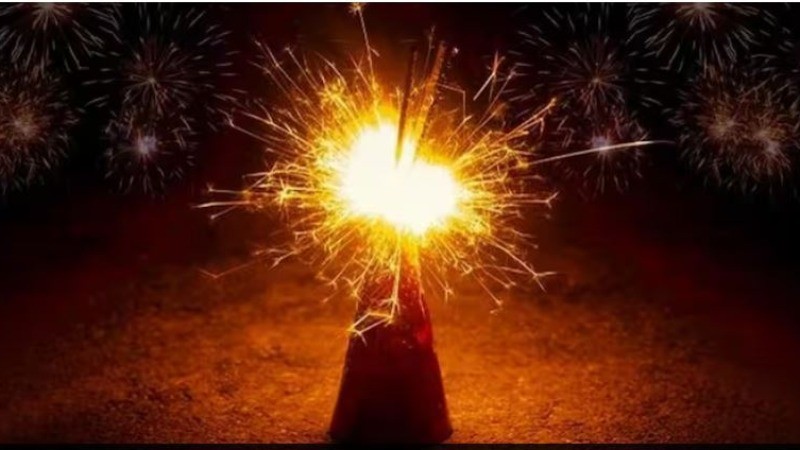
In preparation for Diwali and other upcoming festivals, the Delhi Pollution Control Committee has mandated a total ban on the manufacturing, storage, sale, and use of all types of firecrackers until January 1, 2025. This measure aims to address the expected rise in pollution levels during the festive season.
Delhi's air quality has already deteriorated to the 'poor' category, with the 24-hour average Air Quality Index (AQI) reaching 224 on Sunday, the day after Dussehra. In response, the Centre is monitoring the situation closely and may implement anti-air pollution measures under Stage 1 of the Graded Response Action Plan (GRAP). This plan categorizes air quality into four stages: Stage I ('Poor' with AQI 201-300), Stage II ('Very Poor' with AQI 301-400), Stage III ('Severe' with AQI 401-450), and Stage IV ('Severe Plus' with AQI over 450).
In light of the worsening air quality, Delhi Environment Minister Gopal Rai recently reached out to Union Environment Minister Bhupender Yadav, requesting an urgent meeting to discuss the potential for artificial rain during peak pollution periods in the capital. Rai expressed concerns that air quality could become hazardous in early November, particularly as Diwali approaches.
In his letter, Rai highlighted that there has already been a delay of approximately one month in efforts for cloud seeding in Delhi. He urged for immediate coordination among all relevant stakeholders, including the Ministry of Environment, Forest and Climate Change, the Government of Delhi, and other agencies involved in issuing necessary clearances for cloud seeding.
Rai emphasized the urgency of implementing cloud seeding as an emergency measure to mitigate pollution levels. He noted that various institutions, including IIT Kanpur, have prepared a presentation on this matter, which has been submitted to the Union Environment Ministry.
In his correspondence dated October 10, Rai reiterated the importance of addressing air quality concerns, especially during winter months after Diwali, when smog and environmental degradation typically lead to hazardous pollution levels. He stressed that obtaining prior clearances from various government agencies is essential for the successful implementation of cloud seeding.
Delhi Set to Launch Its First Vehicle Scrapping Facility to Tackle Pollution
Gopal Rai Calls for Emergency Meeting to Address Delhi's Pollution Before Diwali
Delhi Pollution Levels Surge as Monsoon Retreats, AQI Hits 166